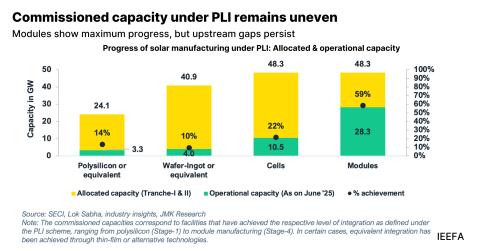IEEFA Energy Finance 2016: India Solar Expansion Gaining Momentum
IEEFA analysts Tim Buckley and Jai Sharda began IEEFA’s Energy Finance 2016 conference in New York this morning with a report suggesting that India’s rapid solar-industry expansion reflects policy and market changes that will dictate the country’s energy development for generations to come.
Buckley said the government of Prime Minister Narendra Modi is taking the long view toward building an energy economy encumbered by coal.
“You can’t continue to pollute the water, you can’t continue to pollute the air, you can’t kill your own people,” Buckley said. “Coal will gradually just be phased out in favor of renewables.”
Buckley and Sharda noted that while India has adopted energy-transition policies modeled after those in China, where utility-scale solar construction is the norm, and Australia, where rooftop solar takes up the lion’s share of solar growth, India is simultaneously and aggressively pursuing both.
India has become the second-biggest solar-energy installer in the world in just two years, and IEEFA sees Indian solar-energy capacity increasing by 300 percent this year and next.
Much of that comes from investment by foreign companies that see opportunity in India, including SoftBank of Japan and FoxConn of Taiwan. Indian energy conglomerates are changing course too. Among them: Adani, which has recently stated the intent of investing $10 billion in 10 gigawatts of solar energy in India by 2021. Buckley noted Adani this month will go online with a $650 million, 648-megawatt India utility-scale solar project that will be the largest in the world, “probably double the next biggest one.”
“And they’ve done it from a dead start 14 months ago.”
He noted also that Reliance Power, a major Indian electricity producer. has recently cancelled 14 gigawatts of thermal power project proposals to focus instead on six gigawatts of solar and five gigawatts of hydro power.
“This is one of the most powerful companies in the country effectively announcing that they’ve given up on thermal and are moving to renewables,” Buckley said. “It’s one of the reasons we think coal will not be the long-term solution to India’s energy challenges.”











